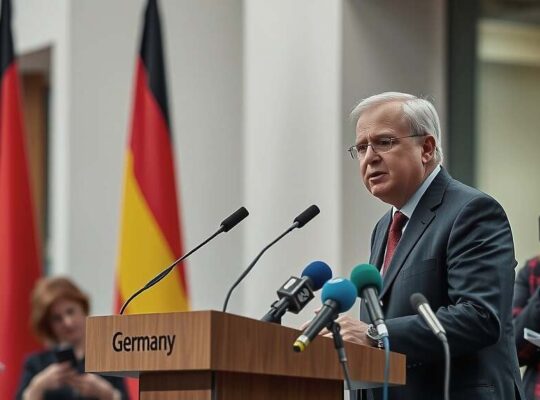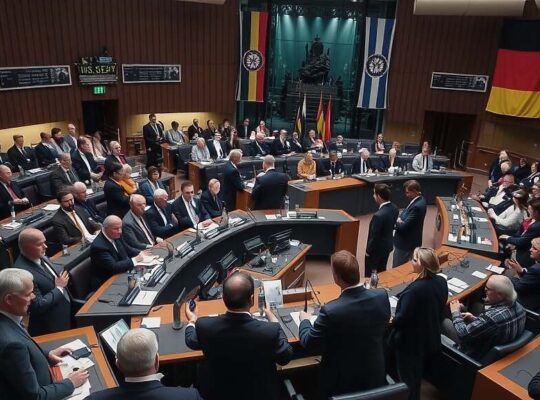The German government’s coalition agreement, recently unveiled, has drawn sharp criticism from labor leaders and social welfare organizations, sparking concerns over a punitive shift in social policy and a deepening chasm in societal solidarity. Yasmin Fahimi, chairwoman of the DGB (confederation of German trade unions), condemned the planned reforms to the Bürgergeld (basic income) system as “absurd” arguing they prioritize draconian sanctions over meaningful workforce integration.
Fahimi’s critique centers on the perceived abandonment of a social welfare model focused on opportunity. “Instead of discussing how to integrate people into the labor market, we are now imposing harsh sanctions to push perhaps a few hundred people off of Bürgergeld. This is absurd” she stated, underlining that the focus should remain on providing prospects rather than stigmatizing recipients. She highlighted the proven effectiveness of existing initiatives like the “Job-Turbo” program.
Beyond the immediate policy changes, critics express apprehension about the potential for legal challenges. Fahimi voiced concerns about a wave of lawsuits, questioning the constitutionality of full benefit withdrawal and pointing to a worrying trend of demonization surrounding Bürgergeld recipients. She attributed the government’s actions to years of a “hate campaign” that fuels the false perception of widespread fraud.
Verena Bentele, president of the social welfare association VdK, echoed these concerns, warning that the new sanctions will exert “little helpful pressure” not just on Bürgergeld recipients but also on low-income workers facing job loss. While supplementary qualification offers for young people and long-term unemployed individuals are welcomed, Bentele insists they must offer “real solutions” to existing integration barriers, specifically addressing the needs of older workers adapting to evolving job market demands.
Michaela Engelmeier, chairperson of the SoVD (Social Association Germany), hopes the renewed controversy surrounding Bürgergeld marks the “end” of what she describes as a “demeaning” debate predicated on suspicion. She advocated for a shift in perspective, arguing that true solidarity requires contribution from those with greater means, a sentiment emphasizing the billions of euros lost annually through loopholes benefiting high-net-worth individuals. “We need to finally move towards a debate about how to more strongly involve the wealthy in our solidarity society instead of just stepping on those below” she said.
Joachim Rock, CEO of the Paritätischer Gesamtverband, dismissed the government’s plans as creating a “bureaucratic monster” arguing that the proposed measures will not facilitate employment but rather drive individuals into “existential need” and potentially exacerbate homelessness, particularly if housing costs face sanctioning. He described the policies as “an unjustified and unsocial vote of mistrust against job seekers.
The emerging backlash signals a deepening societal divide and raises questions about the government’s priorities in addressing unemployment and poverty.












